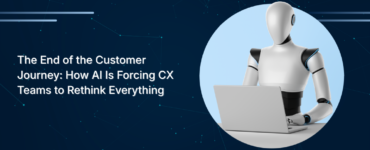What is common to Alexa and Spotify? Behind the custom mobile app development services, they’re both apps that command a user base of billions and are multi-million-dollar global brands.
What truly sets them apart is the technology they operate on—AI technologies for mobile app development. Artificial Intelligence has evolved from being a futuristic concept into a practical solution embedded in our daily digital experiences. From smart voice assistants to personalized playlists, AI is driving the most intuitive and engaging app features we see today.
By leveraging advanced AI subfields like Deep Learning, Machine Learning, and Predictive Analytics, leading businesses are elevating personalization to new heights—impacting not just product features but also marketing precision and customer retention. These capabilities are no longer optional; they are becoming the foundation of the next-gen mobile apps redefining the digital landscape.
Don’t Miss This – 10 React Native Development Mistakes You Shouldn’t Make
And this is just the tip of the iceberg.
Here’s how AI is transforming the mobile app landscape with eight practical use cases that businesses are already adopting.
Automated Reasoning in Smart Apps
Automated reasoning helps apps solve problems logically and make data-driven decisions in real time. For instance, Uber leverages this AI capability to optimize routes for drivers, helping reduce travel time and improve efficiency. The system analyzes huge volumes of traffic data and user history to make accurate decisions instantly.
Other industries are also using automated reasoning to monitor hospital capacity, manage stock market data, or automate travel booking flows. If you’re building a logistics or marketplace app, this feature can significantly enhance operational intelligence.
AI-Powered Security Enhancements
With mobile threats rising—like the 6.87 billion malware attacks blocked in Q3 2024 alone—AI has become vital for app security. It offers protection through anomaly detection, where machine learning monitors user behavior and flags suspicious activity, such as sudden logins from unfamiliar locations.
Behavioral biometrics add another layer by identifying users based on unique swipe patterns or typing speed, while biometric authentication—like facial recognition—has become more advanced thanks to AI’s ability to differentiate between real faces and fake inputs (e.g., photos or videos). Apps like PayPal and Google Pay already use these technologies to build user trust through smarter, real-time security protocols.
Personalized Recommendations for Every User
If your app isn’t recommending what your users need before they ask, you’re already falling behind. One of the most widely used AI-powered mobile app features is content recommendation. Apps like Netflix, Amazon, and Spotify track user preferences, search history, and device usage patterns to offer highly relevant content or products.
This improves engagement, increases conversion, and keeps users hooked—making it especially valuable for eCommerce, streaming, and content platforms. Even a new app can use basic recommendation engines to drive upsells and cross-sells efficiently.
Behavior Pattern Recognition with NLP
Apps today can track and learn user behavior to predict what they’ll do next. For example, Snaptravel uses a combination of natural language processing (NLP) and machine learning to simulate human-like conversation in its hotel booking interface. If the AI encounters a request it can’t handle, a human intervenes—and the AI learns from the experience.
Behavior recognition is also vital in fraud detection. AI systems analyze purchase histories and flag abnormal activity, such as a user suddenly buying something outside their usual pattern. Apps in finance, retail, and booking services all benefit from this intelligence.
Sentiment Analysis for Smarter Feedback
Imagine knowing how users feel about your app—even when they don’t say it directly. That’s the power of sentiment analysis. AI scans app reviews, social media comments, and support messages to detect whether user sentiment is positive, neutral, or negative.
This helps businesses prioritize feature updates, identify bugs, and spot brand risks early. Tools like Aide help companies triage user complaints based on emotional tone. By integrating this into a mobile app, you can align product decisions more closely with user expectations and keep satisfaction levels high.
Predictive Features that Stay One Step Ahead
Predictive analytics, powered by machine learning, lets apps send the right message at the right time. Think of a home services app reminding users to schedule lawn care before the weekend, or a fitness app prompting workouts at your usual time. This kind of intelligence is rooted in learning patterns and forecasting behavior.
Popular examples include period tracking apps, weather apps, and Google’s smart replies in Gmail. Whether you base your app entirely on prediction or simply use it to send timely alerts or deals, predictive AI enhances engagement by making apps feel proactive and thoughtful.
Personalization that Drives Loyalty
One of the biggest strengths of AI in custom app development is the ability to deliver hyper-personalized experiences. For instance, food delivery apps like Zomato send discounts right when you usually order, while streaming apps curate content based on time, mood, and past preferences.
AI uses location, device data, app usage time, and more to build comprehensive user profiles. This allows businesses to customize offers, notifications, and content layouts—boosting conversions, user satisfaction, and customer loyalty in the process.
Dynamic UI for Adaptive Experiences
Static interfaces are outdated. Today’s apps must evolve dynamically based on how users interact with them. Google News, for example, changes its layout, headlines, and suggestions based on user reading habits, current location, and even time of day.
Thanks to AI and low-code tools, even startups can build adaptive user interfaces without complex coding. These interfaces adjust in real time, offering a uniquely personalized experience to each user and reducing bounce rates by keeping content relevant.
What’s Next: The Future of AI in Mobile Apps
The road ahead promises even deeper integration of AI in mobile apps. Here’s what to watch:
1. Deep Learning and Hyper-Personalization
Apps like Duolingo and Netflix already use deep learning to personalize everything from UI to content. In the near future, apps will offer hyper-personalized experiences—where every screen, feature, and suggestion aligns perfectly with user behavior and intent.
2. Secure Payments with Explainable AI (XAI)
With AI decisions becoming more autonomous, users and regulators alike are demanding transparency. XAI (Explainable AI) helps explain why an app flagged a payment or blocked a transaction—building trust, especially in fintech and healthcare apps.
As major manufacturers like Samsung and Apple push for AI-native devices, secure, accountable mobile AI will become an industry standard.
Final Thoughts
AI technologies for mobile app development are no longer optional—they’re the engine driving innovation, efficiency, and user engagement. Whether you’re enhancing security, offering personalized content, or building predictive systems, AI gives your app the intelligence it needs to succeed in a saturated market.
From global giants to early-stage startups, businesses that invest in AI-powered mobile app features are setting themselves apart. As technology evolves, those who adopt AI now will lead the future of mobile.
Want your app to think, learn, and adapt just like your users do? It’s time to go beyond code—and go AI.
Frequently Asked Questions About AI in Mobile App Development
1. How is AI used in custom mobile app development?
AI is integrated into mobile apps to enhance user experience, improve security, and boost personalization. It enables features like smart recommendations, predictive alerts, voice recognition, dynamic UI, and fraud detection—turning static apps into intelligent systems that learn and adapt to user behavior.
2. What are some real-world examples of AI in mobile apps?
Popular apps like Spotify and Alexa use AI for personalized playlists and smart voice interactions. Others like Uber use automated reasoning for route optimization, while Netflix uses machine learning to recommend content. Even fintech apps use AI for biometric authentication and fraud prevention.
3. Is AI-powered personalization really effective?
Yes. AI-driven personalization significantly increases user engagement and loyalty. By analyzing usage patterns, preferences, and real-time behavior, apps can deliver tailored content, offers, and features—making the experience more relevant and satisfying for users.
4. How does AI improve mobile app security?
AI enhances security through anomaly detection, behavioral biometrics, and facial recognition. It monitors for unusual activity (like login attempts from new locations) and identifies users based on swipe or typing behavior. This helps prevent fraud and boosts user trust.
5. Can small businesses and startups afford to use AI in their apps?
Absolutely. With the rise of low-code AI tools and platforms offering AI-as-a-Service, startups can now integrate powerful AI features without massive budgets. Even basic recommendation engines, sentiment analysis, or chatbots can give small apps a big competitive edge.




